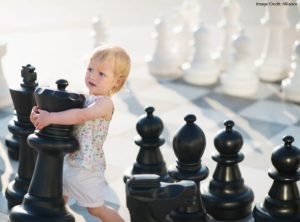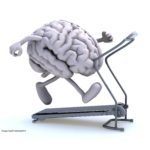As the school year begins, we all want our students to learn more stuff.
We want them to learn phonics rules, or multiplication tables, or Boyle’s law, or the importance of the 13th amendment.
We also might want them to learn more general skills.
We’d like them to learn how to learn. Or, how to manage their emotions. Or, how to focus on one thing at a time.
Must we accomplish our goals by teaching each of those topics specifically? Or, can we teach students one basic skill to help them learn everything else?
“Brain Fitness”? Cognitive Training?
For example: almost all athletes need to have a strong core and high levels of aerobic fitness. If, as a coach, I focus my work there, I help my players get better in almost all sports simultaneously.
Is there a brain analogue for “core strength and aerobic fitness”?
One popular answer to this question is: chess.
We’ve got lots of research showing that chess players score better on IQ and working memory tests than the general population.
Does it follow then that chess training increases general intelligence? If yes, then chess lessons would help students learn to read, and solve quadratic equations, and understand mitosis.
The research giveth…
In the short term, the answer is: “just maybe yes!”
When researchers crunched lots of data in a “meta-analysis,” they might have been optimistic that such cognitive training works.
That optimism, alas, lasted only briefly:
These results may be considered “cautiously promising.” In fact, they are not. The size of the effects was inversely related to the quality of the experimental design. Specifically, when the experimental groups were compared with active control groups — … to rule out possible placebo effects… [or] the excitement induced by a novel activity — the overall effect sizes were minimal or null.
In other words: the better the research, the less likely it was to show any benefit. Almost certainly, general cognitive training led to improvement only because participants believed it would.
Practical Implications
The bad news: we just don’t have good evidence that chess, or working memory training, or music lessons improve other cognitive abilities.
(Of course, chess lessons make people better at chess. Oboe lessons make people better at playing the oboe.)
The good news: school works. When we want our students to learn how to analyze a poem, we can teach them to do so: one beautiful poem at a time.




